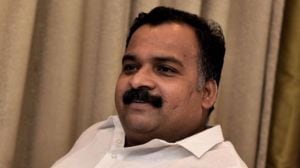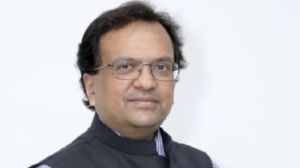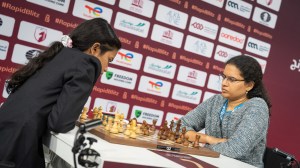Letters to the editor
Very much Indian8226; I THINK The Indian Express got it wrong when it editorially expressed strong doubts about the conceptual validity of ...

Very much Indian
8226; I THINK The Indian Express got it wrong when it editorially expressed strong doubts about the conceptual validity of the term diaspora in the Indian context; you were also not terribly impressed with the NRI conferences the government organises 8216;Mother India8217;, IE, January 9. I agree that all the hype and hoopla at NRI conferences can get tiresome. But why single out these jamborees? What about conferences on saving the farmer, restoring dignity to women, empowering the poor, looking at 21st century management principles 8212; Lutyens8217; Delhi is full of such events that produce equally tiresome rhetoric. I am a PIO 8212; person of Indian origin 8212; currently living in India and I have practically benefited because of official energy expended on the Indian diaspora. Vajpayee made the promise of dual citizenship in 2004, Manmohan delivered it in 2006, in form of the OCI card. This has saved me the drudgery of obtaining six month visas. I can now do serious business in India. I plan to attend the next installment of the Pravasi Bharatiya Divas 8212; unless of course the government takes The Indian Express argument to its heart and scraps the event!
8212; Amar Maini, Mumbai
Nehru8217;s schedule
8226; IT is sad and surprising that no journalist recalled Indira Gandhi8217;s infamous quote about a 8216;committed judiciary8217; when reporting or commenting on the Supreme Court ruling on the Ninth Schedule. What the senior Mrs Gandhi was so much in favour of has been finally undone during the political prominence of the junior Mrs Gandhi. The Congress that pays court to the junior Mrs Gandhi is perhaps scared that the Ninth Schedule will be trimmed. That future arbitrary laws will be open to judicial scrutiny. The current Mrs Gandhi should ensure her party does not come up with creative ways to subvert this judicial directive.
8212; Subrahmanian S.H., New Delhi
Engaging question
8226; I refer to your page one report 8216;Big B confirms Ash-Abhishek are engaged8217; IE, January 15. Even The Indian Express has joined the rest of the media in treating to movie stars8217; marriage as headline news. Yes, the engagement had generated popular curiosity. But why not make it the main story in the entertainment section? And, of course, the media is so supine in its treatment of Bollywood stars that no one will ask why the engagement was announced three days after Guru was released 8212; to poor box office response.
8212; Amjad K. Maruf, Mumbai
Bricks from barrack
8226; THIS is about the recent fracas involving a group of soldiers attacking a police station in Calcutta in reaction to the arrest of some of their officers. While from a legal and ethical point of view the action by indignant jawans is outrageous, there is a larger problem that explains such behaviour by our men in uniform.
They belong to another society as it were 8212; a regimented social group that lives and works in an ethos that fosters deep loyalties between its men and officers 8212; the kind of sentiment which prompts them to risk their lives for each other in combat. This loyalty and camaraderie do not alter by any degree, whether in Calcutta or Siachen. Ironically, the Indian soldier often develops a scorn for the very society he serves when he sees corruption, nepotism, materialism and callousness in the 8216;civil world8217;. The Calcutta incident cannot be seen in isolation as a law and order problem. It could be essentially a clash of cultures 8212; a perplexing divide between the military and the civil way of life.
8212; Meghana Athavale, Mumbai
- 01
- 02
- 03
- 04
- 05































